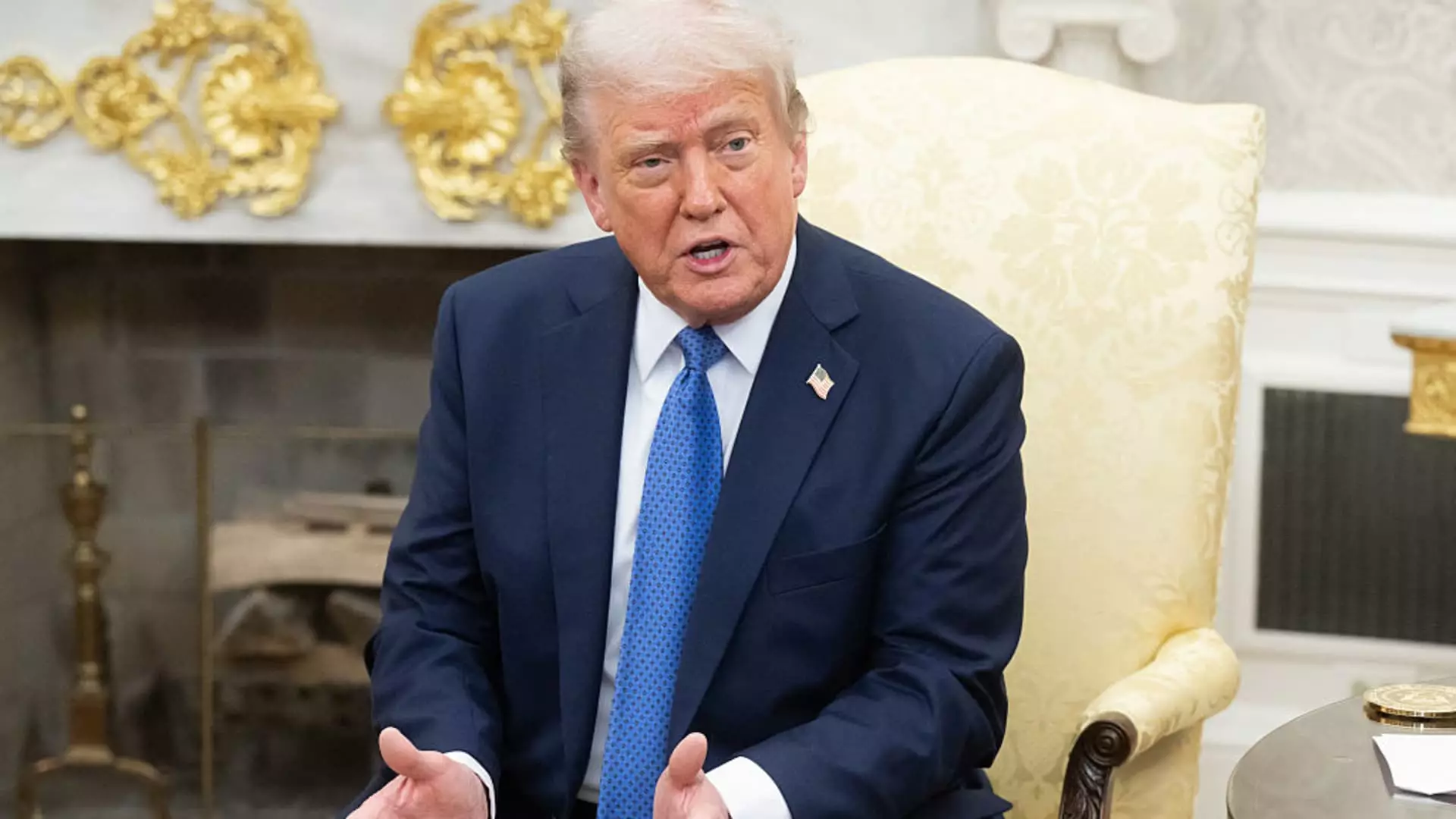In a recent interview with Time magazine, former President Donald Trump made clear that the wild fluctuations in the bond market had no bearing on his decision to temporarily suspend reciprocal tariffs against U.S. trading partners. This assertion may raise eyebrows, given how closely financial markets reacted to his policy shifts. Immediately following Trump’s “Liberation Day” announcement, involving a 10% across-the-board tariff on U.S. imports, the markets experienced a volatile downturn. The quick rise in the 10-year Treasury yield—from a low point to a half-percentage point higher—suggests that investors certainly perceived his decisions as risky. Trump’s dismissal of market concerns seems more like a defiant refusal to acknowledge reality rather than a testament to his confidence.
Tariffs and the Illusion of Competence
What’s particularly disconcerting about Trump’s stance is the apparent belief that negotiating with foreign countries could yield beneficial outcomes without causing economic disruption. While it’s commendable to want to promote national interests, the blunt application of tariffs can be disastrous. The additional duties were based on trade deficits, undoubtedly designed to make the U.S. appear tough on trade. However, such simplistic approaches ignore the intricate web of global economics. By framing his resistance to markets as strategic prowess, Trump perpetuates an illusion of control over a system that rarely bends to political whims.
Confidence Amidst Chaos
Remarkably, Trump stated, “I wasn’t worried,” regarding the bond market sell-off. Such bravado might stem from a genuine belief in U.S. resilience, yet it ignores the historical context. Markets are not infallible, but they are usually accurate in their reactions to policy changes. By claiming that the bond market was merely experiencing the “yips,” Trump diminishes the serious implications of fiscal mismanagement. For any responsible leader, he should have prioritized stabilizing markets rather than submissively suggesting that they’re refusing to comprehend his “greatness.”
A Dangerous Game of Chicken
With Trump declaring that he would deem it a “total victory” to maintain tariffs as high as 50% for an entire year, one can’t help but wonder what that means for the consumer and the broader economy. Such a strategy could potentially lead to price increases on everyday goods. Whether it’s consumers or the businesses that rely on foreign materials, there are always repercussions. That kind of thinking is emblematic of center-right liberalism gone awry—where economic nationalism overshadows pragmatism.
Negotiation or Stalemate?
Negotiations over tariffs are ongoing, but the framework under which they occur appears deficient. By abdicating responsibility for market outcomes while promoting harm to trade relationships, this can lead not to a beneficial resolution but rather a protracted stalemate. If tariffs remain entrenched for years, it won’t just be foreign nations that feel the impact; the American economy could suffer greatly, creating yet another economic hurdle in what many argue is an already fragile landscape.
Trump’s denial of market reactions positions him at odds with economic realities. It’s a narrative that may rally supporters but poses significant risks for the nation at large. This manipulation of market sentiment, if unchecked, threatens more than just market fluctuations; it endangers long-term economic stability.

